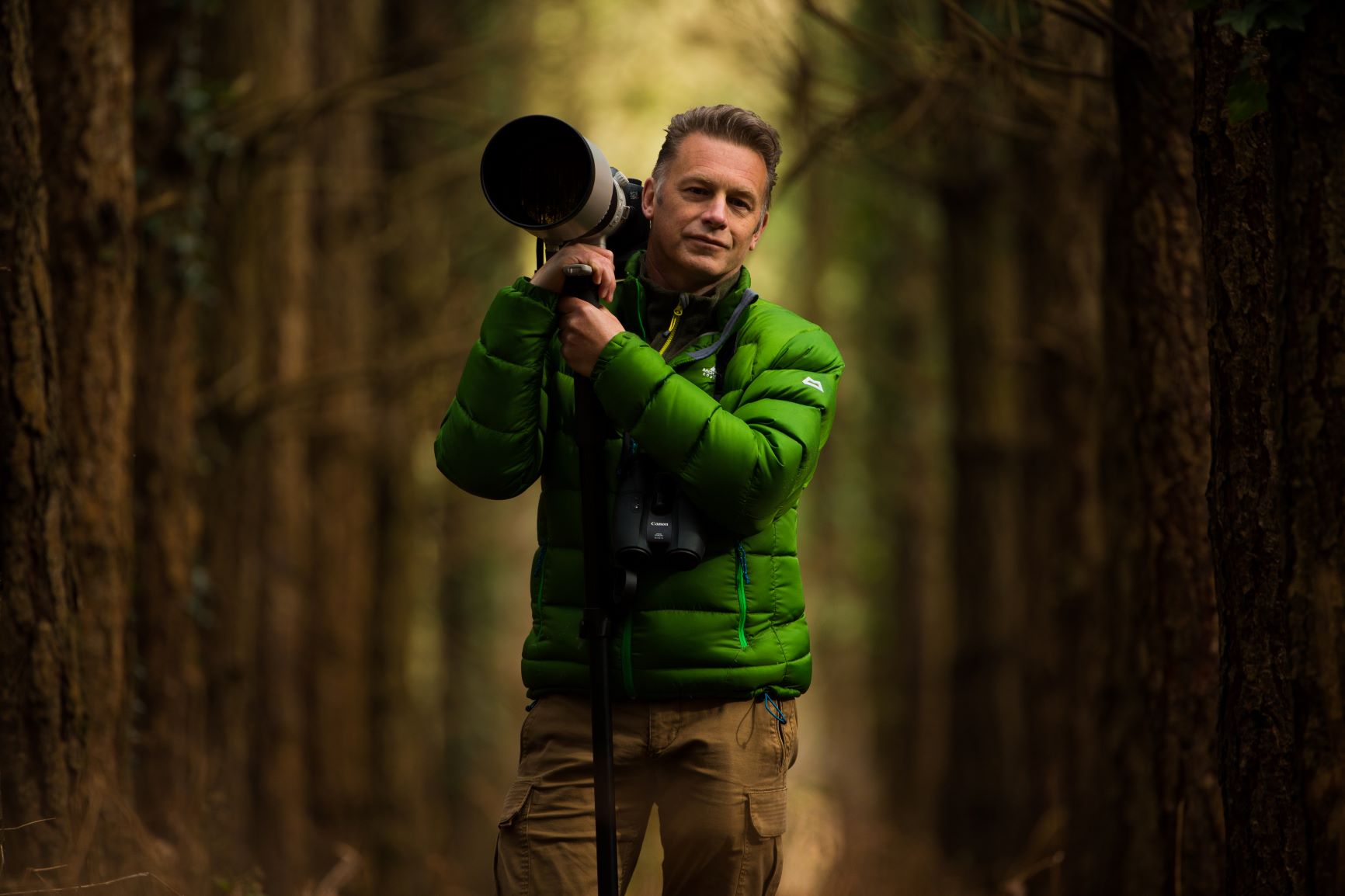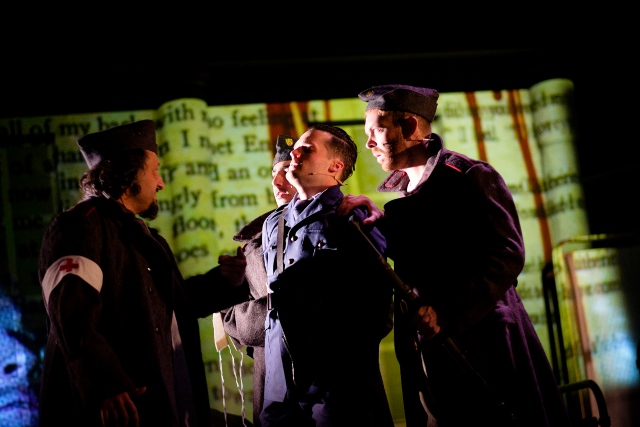When I speak to Chris Packham, he is sitting in his garden in the New Forest taking time out from writing to enjoy the view. “I’m surrounded by woods. I spend more time in the woods than the house.”
The naturalist, broadcaster and photographer is busy writing about the subject closest to his heart. “I look at nature writing and try to see it in a slightly different way,” he says. “If I can’t come up with an original idea, then you won’t get me to sit in front of the keyboard or pick up the pen.”
Packham will be sharing his thoughts on his wildlife and conservation work when he heads to Harrogate in October for a special evening of talks at the Royal Hall. He’ll also discuss his autobiography, Fingers in the Sparkle Jar, which inspired his ground-breaking TV documentary Asperger’s and Me. The talk is presented by Cause UK in association with The Wild Watch.
With more than 50 per cent of species in decline across the UK, Nidderdale AONB is currently conducting its biggest wildlife survey with The Wild Watch project, supported by the National Lottery Heritage Fund, to inform conservation strategies. The event also includes a talk by presenter and adventurer, Steve Backshall.
For Packham, conservation and continuing to engage with nature is vital. “We’ve a had a great disconnection. We don’t know where our food comes from. We go into supermarkets and we don’t know what it is, how much it costs to produce, certainly environmentally, and often it costs a lot more than the pounds in our pocket.”
This is most clear to Packham when it comes to the current generation of children and their ability to connect with nature. “I’ve lived in these woods now for 12 years and I’ve never seen a child in the woods exploring it as I would have done as a boy. Not a single child, they’re extinct in the countryside.”
 Packham feels that by engaging with nature in our every day lives and developing an affinity with it, we are more likely to look after it. “It’s about reconnecting with those people,” he reflects. “Getting them in physical contact and getting them to breathe it, smell it, get stung, bitten and scratched by it. It’s those sorts of things that develop that lifelong fascination.”
Packham feels that by engaging with nature in our every day lives and developing an affinity with it, we are more likely to look after it. “It’s about reconnecting with those people,” he reflects. “Getting them in physical contact and getting them to breathe it, smell it, get stung, bitten and scratched by it. It’s those sorts of things that develop that lifelong fascination.”
Packham is well known for championing environmental causes and movements for social change, organising last year’s People’s Walk for Wildlife and recently showing his support for Extinction Rebellion. I ask him about his role in inspiring others.
“Well, it’s a duty really, it’s not something I have a choice about. I’m not here to make friends, I’m here to make a difference.”
Packham feels that he has an ethical and moral compulsion to do that. “I’m not someone who can just stand by and hope someone else comes along and fixes stuff. I will try to fix it myself, but it’s a big job and I will need people’s help, so I’ll try to get them on board, and I’ll do that with gusto and energy.”
 Packham has also engaged and informed people through his autobiography and the documentary Asperger’s and Me. How comfortable was he revealing this about himself?
Packham has also engaged and informed people through his autobiography and the documentary Asperger’s and Me. How comfortable was he revealing this about himself?
“The difficulties are that I’m not a very interesting person compared to all the things that I normally talk about. I can tell you a lot more interesting things about a blue tit and a bumble bee than about me. However, I also recognised that I have developed the ability to articulate what it was like to have Asperger’s both as a child as my memory’s extremely good, and as an adult, and it was clear to me through my other campaigning work that I was able to communicate with people.”
The Southampton-born 58-year-old understands the importance of engaging with those with Asperger’s and encouraging communication, particularly with the associated effects on mental health. “I remember being effectively locked either in my bedroom or locked in the woods, the only two places that I felt any security between the ages of about 14 and 25, and being extraordinarily isolated and depressed. I manged my way out of that, I was very fortunate, but I think there’s a lot more help and understanding out there, a lot more awareness in families, and we have to make sure that that’s all brought to bear.”
We talk about how Packham is making natural history fascinating to people through sharing his interest in such an accessible way. “I’m just a normal bloke, well apart from the Asperger’s,” he laughs. “Asperger’s isn’t all of me, it’s something which has shaped my personality and continues to do so. It’s not just an all-defining badge, it impacts each one of us in a slightly different way and so I don’t allow it to define me.”
 As we finish our conversation, I mention that I love how he sneakily threads cultural references through programmes like Springwatch, citing his use of Manic Street Preachers’ song titles a while back. I suggest perhaps it’s one of the things that make his presenting style so accessible.
As we finish our conversation, I mention that I love how he sneakily threads cultural references through programmes like Springwatch, citing his use of Manic Street Preachers’ song titles a while back. I suggest perhaps it’s one of the things that make his presenting style so accessible.
“Also, I have to keep myself amused when I’m doing these programmes. One of the problems with Asperger’s is that we’re very easily distracted by things. I can’t start talking about Native Americans or Mark Rothko, although sometimes I have. It’s a means to giving me something to think about and keeping me on track to be quite honest with you.”
It’s yet another example of his candour. I can’t think of many broadcasters who have that ability to engage and inspire viewers in such a unique way.
An Evening with Chris Packham in at The Royal Hall in Harrogate October 19, 2019 at 7pm.











